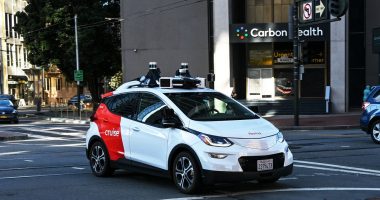META CEO Mark Zuckerberg has unveiled a ruthless, more lifelike artificial intelligence model.
Dubbed Cicero, the model is named after the Roman statesman and is capable of performing human skills like negotiation, trickery and forethought, the Washington Post reported.
What’s more, the AI algorithm often wins at the complex strategy game Diplomacy.
That makes Cicero the first AI computer to reach human-level performance in the complex natural language strategy game.
“An agent that can play at the level of humans in a game as strategically complex as Diplomacy is a true breakthrough for cooperative AI,” said Yann LeCun, VP and Chief AI Scientist of Meta AI.
The AI played with humans on webDiplomacy.net, which is the online version of the game.
Cicero played more than 40 games and showed deceptiveness, ruthlessness, and cunningness.
Furthermore, after playing with real people, Cicero ranked in the top 10 percent of participants who played more than one game.
Meta chose Diplomacy because, for decades, AI has progressed thanks to benchmarks set by gameplay.
Cicero’s success in Diplomacy is proving how impressive – and lifelike – AI models are becoming, with Meta calling it a “breakthrough” in a blog post.
Most read in Tech
The tech giant added that the breakthrough rests in the achievement of combining two different areas of AI: strategic reasoning and natural language processing.
“The integration of these techniques gives Cicero the ability to reason and strategize with regard to players’ motivations, then use natural language to communicate, reach agreements to achieve shared objectives, form alliances, and coordinate plans,” Meta said.
However, some experts are concerned with AI having the skills to withhold information or think in advance.
“This type of technology could be used to concoct smarter scams that extort people or create more convincing deep fakes,” Pranshu Verma writes for the Washington Post.
“It’s a great example of just how much we can fool other human beings,” Kentaro Toyama, a professor, and artificial intelligence expert at the University of Michigan, told the Post.
“These things are super scary … [and] could be used for evil.”
“AI is like the nuclear power of this age,” Toyama added.
“It has tremendous potential both for good and bad, but … I think if we don’t start practicing regulating the bad, all the dystopian AI science fiction will become dystopian science fact.”










